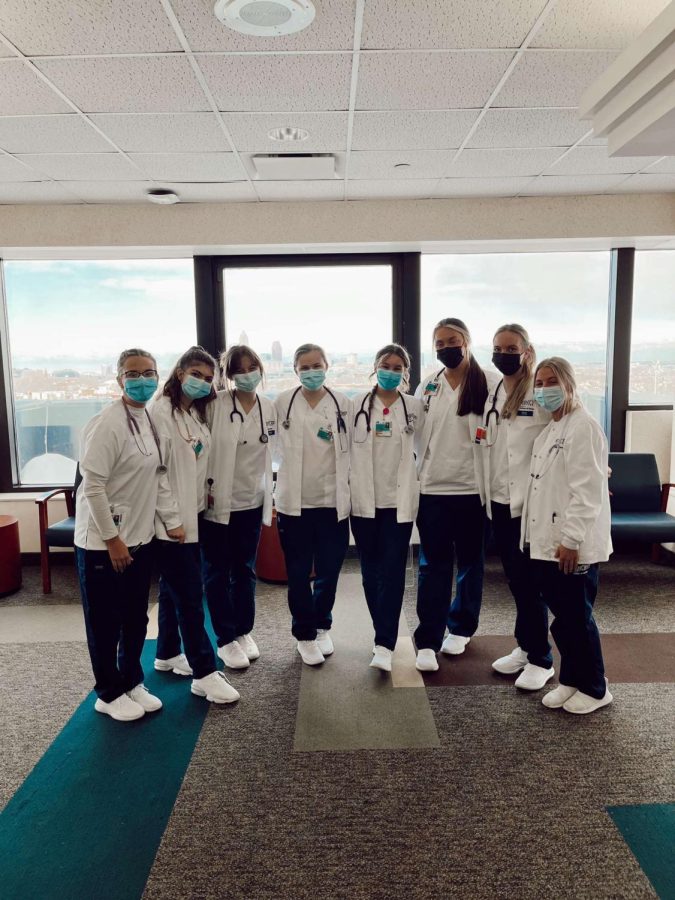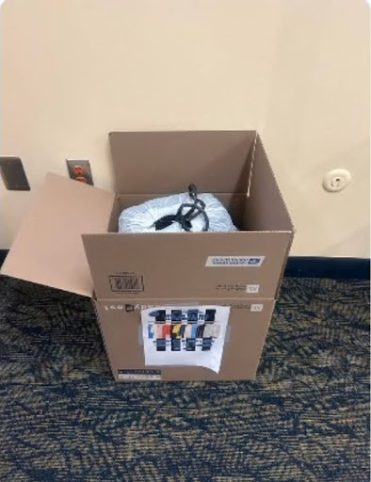As a nursing student, one step closer to working in the world of medicine is working in a clinical setting. Beginning sophomore year, nursing students get a look at the world they have been studying for several semesters.
Isabella Columbe, a junior nursing student, has experienced the clinical world for nearly two years now.
“A lot of people benefit from seeing that we learn from the textbook actually in person,” she said.
There are several requirements to get into the clinical program, established by the university.
According to Associate Dean of Academics at the College of Nursing Tracey Motter, one must achieve a 2.75 GPA, which takes into account four science prerequisite courses and overall GPA.
As a whole, each semester the program accepts roughly 144 4-year traditional students and about 24 accelerated second degree students.
“[It is a] competitive process, but not everyone can do it, so you have to be pretty good with math and science,” she said.
Columbe stressed that, although it is challenging to be accepted into the program, the benefits are all worthwhile.
“Yes, it is hard, and it is a lot of work to get into, but once you are in it, you get everything you need,” she said.
Since this is such a large milestone, many students fear the unknown. It is hard to imagine what being with a patient one-on-one is like until it happens right in front of you.
“I was very nervous at first, just being there in the hospital and having to go up to a patient,” Columbe said.
She expressed that it is an intimidating atmosphere because the students have to tell the patients they are not certified yet.
Nonetheless, Columbe signified her gratitude for the patients, noting they are a huge help in the process of learning new information and gaining experience in the hospital.
“Patients genuinely want to help you learn, too,” she said.
Columbe explained that the first clinical a student has is the second semester of their sophomore year. From there, they have them until they graduate; however, they become more complex throughout one’s education.
Clinicals, although they are deemed to be stressful and scary, are extremely beneficial if one wishes to become a nurse.
“Being able to even be present in a hospital as someone who is not on paper qualified yet is huge…yeah we learn about it, that’s great, and you can know so much about it, but seeing it is a whole different thing,” she said.
The opportunity to take part in a clinical is crucial for a growing nursing student. The experience it provides prepares a student to transition into a professional, in the complex and competitive world of nursing.
Nurses “really are the eyes and ears and the patient advocate,” Motter said.
Sarah Petrovich is a reporter. Contact her at [email protected].





